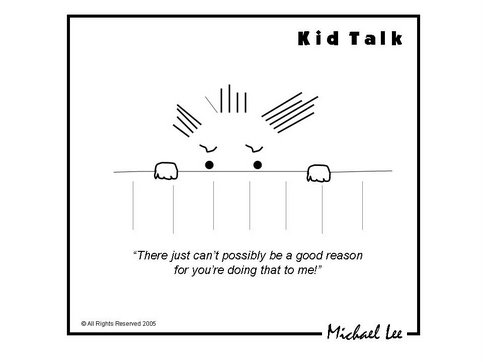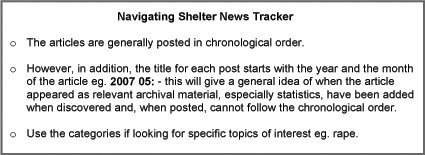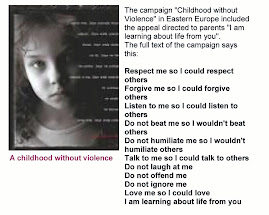

Tuesday, 31 July 2007
2007 07: Ministry to amend rules on punishment for students
The Star Online. News. Nation. Friday July 27, 2007
PUTRAJAYA: The Education Ministry wants to amend the decades-old regulations on punishment so that all parties are clear on how students should be disciplined.
At present, when a student commits an offence, the rules allow the school authorities to impose four types of punishment – warning, caning, suspension or expulsion.
Education Minister Datuk Seri Hishammuddin Tun Hussein said the amendments would involve disciplining of the students, teachers’ responsibility and actions to be taken.
He said the regulations have been in existence since 1957.
“What we have now are too general, so we need to amend them to ensure that they (the forms of punishment) are clear to everyone,” he told a post-Cabinet press briefing yesterday.
Hishammuddin said he would defend teachers as long as they followed the rules when it came to disciplining a student.
“I believe the best way is still to solve problems face-to-face. But if students are not disciplined, it is the teachers who are blamed.
“The best way is to have an understanding between the schools and parent-teacher associations,” he added.
Deputy Education Minister Datuk Noh Omar said that in reviewing the regulations, the ministry would be mindful about not allowing the students to be “untouchables”.
Pinching or pulling the ear of a student and other forms of punishment are considered “grey areas” under the present regulations.
Congress of Unions of Teachers in the Education Services president Jemale Paiman said the new regulations must be clear so that teachers, parents and students know what to expect.
“The punishment must also be appropriate to the offence committed,” he said.
National Parent-Teacher Association Council president Prof Mohd Ali Hassan said students must be disciplined but they should not be “dehumanised” in the process.
National Union of the Teaching Profession president Anuar Ibrahim said: “We feel it is time the regulations are reviewed to ensure that they are clearer for teachers.”
..........................................................
Discipline positively
The Star Online. News. Nation. Saturday July 28, 2007
THE recently highlighted cases of harsh treatment meted out to pupils by their well-meaning teachers have resulted in the Education Ministry deciding to review the rules that were laid down as long ago as 1957.
Some amendments and clarification look to be in the offing. I would suggest that the most important change should be to do away with any physical punishment whatsoever: no hitting, caning, pinching, sitting in ponds, etc.
This would send a clear message to all concerned that schools and teachers will strive to be both moral and non-violent models to pupils, just as parents should be.
When children are met with acts of physical violence by adults, they withdraw into themselves or react in a similar fashion – they become reluctant learners or they become more aggressive and disobedient over time.
In either case, the psychological damage is done and the perpetrator has lost their goodwill and respect forever.
I have met teachers who have told me that they hit their pupils quite regularly for minor infringements of classroom rules and when asked why, they claimed the children liked it!
I was tempted to turn the tables on them to see whether they liked it too!
There are many forms that punishment can take in the school context that can be constructive, supportive and sensitive and which would reinforce both positive learning models and positive images of teachers and schools as effective moral and ethical leaders and carers.
Teachers need clear guidelines, training and support. They should feel confident that there is a support mechanism within their schools and the local education offices should they need help in dealing with disciplinary matters so that teachers such as Wee Yim Pien are not put in a difficult position and left to their own devices.
I deplore what she did but at the same time I’m sure she would not have done so if there were means by which she could discuss the issue, the potential punishments and their ramifications before acting.
I hope the Education Ministry will consult with teachers, teacher’s unions, parents and education experts before amending the current regulations and setting new guidelines.
Change will only work if those directly affected have been fully consulted and are in broad agreement. This will take time.
STEVE PROCTER,
English Language Co-ordinator, Perlis.
..........................................................
Editorial: Lessons learned
NST Online. Columns. 28/7/07
THE recent spate of cases involving discipline in schools — or rather the lack of it, or of control over the measures taken to remedy that lack — make all the more welcome the advent of the amended Education Regulations (Student Discipline) 2006.
These will supplant the education rules set out in 1957 and 1959, accommodating the changing psychodynamics of school environments and the societies they serve.
The drafters of the original regulations, rooted in a bygone era when parents as a rule were only too glad to look to schools to discipline their offspring, could not have anticipated such radical changes in social conventions and norms as have taken place since then.
These days, any adult, whether teacher or parent, administering corporal punishment on a child risks being reported for abuse. Wising up to this, the present school-going generation has been notable for problems of bullying, truancy, juvenile delinquency and defiance of authority.
The backlash against this has been increasingly measured in teachers losing their temper and going well over the top in retribution: slaps, punches, flailing canes, even the infamous immersion incident that made newspaper front pages this past week.
Somewhat surprisingly (though in this, too, there is a lesson) that incident seems to have reached an amicable conclusion, with the students concerned declaring their love and support for the teacher in question, who asked for and received their forgiveness and that of their parents.
That episode is now seen as almost a family affair; a domestic spat that got out of hand but is now resolved with the contrition and repentance of all involved and tearful hugs all round. But other cases of teachers accused of using excessive force on their pupils may yet result in prematurely ended careers, if not criminal charges.
The intention of the new education rules is as much to protect teachers as students: an institutionalisation of procedures necessary to insulate all parties from the unpredictable excesses of the human temperament.
The new rules specify in more exacting detail the nexus between offence and punishment, the procedures for administering correction, the involvement of school boards and parent-teacher associations, and the recourse for aggrieved parties. It must be understood, however, that such recourse includes the press.
Those who take a dim view of the media highlighting such incidents should consider how such publicity heightens awareness among the public and authorities alike, accelerating action, catalysing change and ensuring that such transgressions do not recur.
PUTRAJAYA: The Education Ministry wants to amend the decades-old regulations on punishment so that all parties are clear on how students should be disciplined.
At present, when a student commits an offence, the rules allow the school authorities to impose four types of punishment – warning, caning, suspension or expulsion.
Education Minister Datuk Seri Hishammuddin Tun Hussein said the amendments would involve disciplining of the students, teachers’ responsibility and actions to be taken.
He said the regulations have been in existence since 1957.
“What we have now are too general, so we need to amend them to ensure that they (the forms of punishment) are clear to everyone,” he told a post-Cabinet press briefing yesterday.
Hishammuddin said he would defend teachers as long as they followed the rules when it came to disciplining a student.
“I believe the best way is still to solve problems face-to-face. But if students are not disciplined, it is the teachers who are blamed.
“The best way is to have an understanding between the schools and parent-teacher associations,” he added.
Deputy Education Minister Datuk Noh Omar said that in reviewing the regulations, the ministry would be mindful about not allowing the students to be “untouchables”.
Pinching or pulling the ear of a student and other forms of punishment are considered “grey areas” under the present regulations.
Congress of Unions of Teachers in the Education Services president Jemale Paiman said the new regulations must be clear so that teachers, parents and students know what to expect.
“The punishment must also be appropriate to the offence committed,” he said.
National Parent-Teacher Association Council president Prof Mohd Ali Hassan said students must be disciplined but they should not be “dehumanised” in the process.
National Union of the Teaching Profession president Anuar Ibrahim said: “We feel it is time the regulations are reviewed to ensure that they are clearer for teachers.”
..........................................................
Discipline positively
The Star Online. News. Nation. Saturday July 28, 2007
THE recently highlighted cases of harsh treatment meted out to pupils by their well-meaning teachers have resulted in the Education Ministry deciding to review the rules that were laid down as long ago as 1957.
Some amendments and clarification look to be in the offing. I would suggest that the most important change should be to do away with any physical punishment whatsoever: no hitting, caning, pinching, sitting in ponds, etc.
This would send a clear message to all concerned that schools and teachers will strive to be both moral and non-violent models to pupils, just as parents should be.
When children are met with acts of physical violence by adults, they withdraw into themselves or react in a similar fashion – they become reluctant learners or they become more aggressive and disobedient over time.
In either case, the psychological damage is done and the perpetrator has lost their goodwill and respect forever.
I have met teachers who have told me that they hit their pupils quite regularly for minor infringements of classroom rules and when asked why, they claimed the children liked it!
I was tempted to turn the tables on them to see whether they liked it too!
There are many forms that punishment can take in the school context that can be constructive, supportive and sensitive and which would reinforce both positive learning models and positive images of teachers and schools as effective moral and ethical leaders and carers.
Teachers need clear guidelines, training and support. They should feel confident that there is a support mechanism within their schools and the local education offices should they need help in dealing with disciplinary matters so that teachers such as Wee Yim Pien are not put in a difficult position and left to their own devices.
I deplore what she did but at the same time I’m sure she would not have done so if there were means by which she could discuss the issue, the potential punishments and their ramifications before acting.
I hope the Education Ministry will consult with teachers, teacher’s unions, parents and education experts before amending the current regulations and setting new guidelines.
Change will only work if those directly affected have been fully consulted and are in broad agreement. This will take time.
STEVE PROCTER,
English Language Co-ordinator, Perlis.
..........................................................
Editorial: Lessons learned
NST Online. Columns. 28/7/07
THE recent spate of cases involving discipline in schools — or rather the lack of it, or of control over the measures taken to remedy that lack — make all the more welcome the advent of the amended Education Regulations (Student Discipline) 2006.
These will supplant the education rules set out in 1957 and 1959, accommodating the changing psychodynamics of school environments and the societies they serve.
The drafters of the original regulations, rooted in a bygone era when parents as a rule were only too glad to look to schools to discipline their offspring, could not have anticipated such radical changes in social conventions and norms as have taken place since then.
These days, any adult, whether teacher or parent, administering corporal punishment on a child risks being reported for abuse. Wising up to this, the present school-going generation has been notable for problems of bullying, truancy, juvenile delinquency and defiance of authority.
The backlash against this has been increasingly measured in teachers losing their temper and going well over the top in retribution: slaps, punches, flailing canes, even the infamous immersion incident that made newspaper front pages this past week.
Somewhat surprisingly (though in this, too, there is a lesson) that incident seems to have reached an amicable conclusion, with the students concerned declaring their love and support for the teacher in question, who asked for and received their forgiveness and that of their parents.
That episode is now seen as almost a family affair; a domestic spat that got out of hand but is now resolved with the contrition and repentance of all involved and tearful hugs all round. But other cases of teachers accused of using excessive force on their pupils may yet result in prematurely ended careers, if not criminal charges.
The intention of the new education rules is as much to protect teachers as students: an institutionalisation of procedures necessary to insulate all parties from the unpredictable excesses of the human temperament.
The new rules specify in more exacting detail the nexus between offence and punishment, the procedures for administering correction, the involvement of school boards and parent-teacher associations, and the recourse for aggrieved parties. It must be understood, however, that such recourse includes the press.
Those who take a dim view of the media highlighting such incidents should consider how such publicity heightens awareness among the public and authorities alike, accelerating action, catalysing change and ensuring that such transgressions do not recur.
Subscribe to:
Post Comments (Atom)



No comments:
Post a Comment